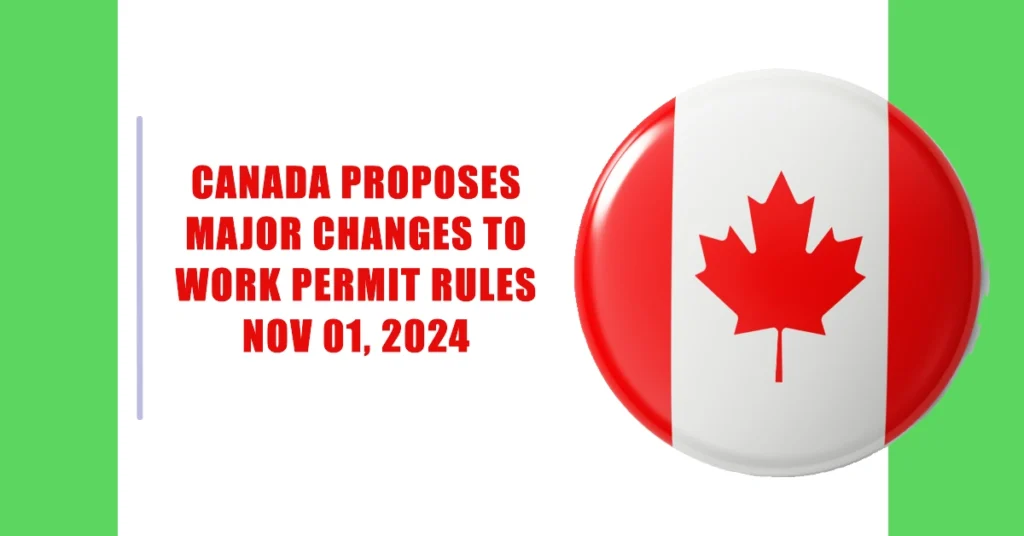Canada has seen a significant increase in the number of temporary residents in recent years, largely due to a rise in international students and temporary foreign workers. As the demand for these individuals grows, the Canadian government is making substantial changes to its immigration laws to better regulate the influx of foreign workers, international students, and permanent residents. The latest Immigration Levels Plan, which outlines changes for the years 2025 to 2027, is set to be released by November 1, 2024.
Table of Contents
Language Proficiency Requirement for Work Permits
One of the key changes to Canada’s work permit regulations will be the introduction of a language proficiency requirement. Effective on or after November 1, 2024, all applicants for the Post-Graduation Work Permit Program (PGWPP) must demonstrate a minimum level of French or English language competency.
Specifically, the government will establish a Canadian Language Benchmark (CLB) level 7 requirement for university graduates and a CLB level 5 for college graduates seeking to apply for a post-graduation work permit. This modification aims to ensure that temporary foreign workers possess the necessary language skills to integrate into the Canadian workforce effectively.

Decreasing the Number of Temporary Residents
In a bid to better manage its population, Canada plans to reduce the proportion of temporary residents from the current 6.5% to 5% of its total population. This reduction will be reflected in the Immigration Levels Plan for 2025 to 2027. By adjusting the number of temporary residents, the government hopes to create a more balanced immigration system that addresses the needs of the Canadian labor market.
Permit for Post-Graduation Work (PGWP) Limitations
Another significant modification involves the eligibility duration for Post-Graduation Work Permits (PGWPs). For graduates whose fields of study are not related to long-term shortage occupations, the duration of eligibility will be shortened to 2 years, down from the previous maximum of 3 years.
Furthermore, the government plans to enforce stricter qualifying requirements for the PGWP program. These adjustments are expected to result in approximately 175,000 fewer post-graduation employment permits being issued over the next three years.
Latest BC PNP Draw 2024: 173 Invitations Issued for Permanent Residency October 8, 2024
Top LMIA-Approved Jobs in Canada October 2024: Leading Companies & Application Process
IRCC Caregiver Pilot Programs 2024: Eligibility & Application Process
Express Entry Draws October 2024: IRCC Issues 2,113 PR Invitations in Latest Draws
IRCC Extends Public Policy for Immigration Medical Examination Exemptions until 2029
Spousal Open Work Permit Changes
The changes to work permits will also affect the spouses of foreign workers. The eligibility for spousal open work visas will be limited to spouses of highly qualified workers in industries experiencing severe labor shortages. Eligible occupations will include C-suite executives, researchers, engineers, attorneys, and technicians.
Moreover, the eligibility of work permits for spouses of students enrolled in specific programs, such as doctoral, master’s, and professional courses, will be restricted. However, spouses of those working in the construction and healthcare sectors will still qualify for these permits. As a result, Canada anticipates issuing about 100,000 fewer work permits in this category over the next three years.
Looking Ahead: Immigration Levels Plan 2025-2027
The annual immigration levels plan for 2025 to 2027 is set to provide further insights into Canada’s immigration strategy moving forward. Marc Miller, the Minister of Immigration, Refugees, and Citizenship, will present this plan by November 1, 2024. The anticipated changes reflect Canada’s commitment to balancing its immigration system while ensuring that it meets the labor market needs of the country.
As these changes come into effect, prospective international students and foreign workers should stay informed about the evolving regulations and ensure they meet the necessary requirements to apply for work permits in Canada
